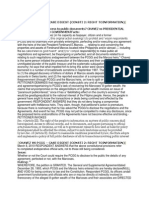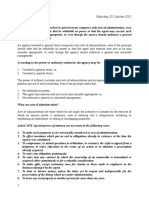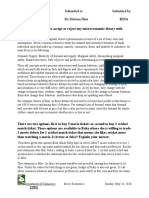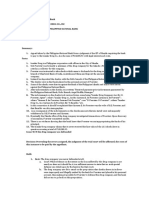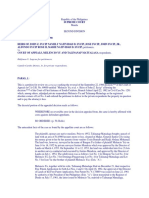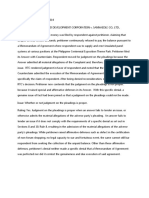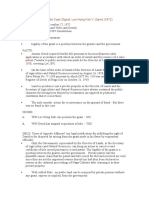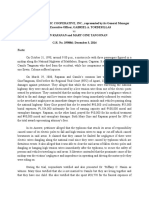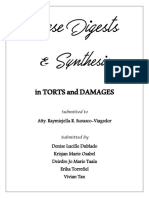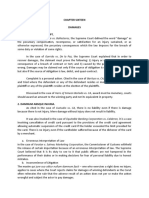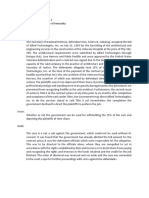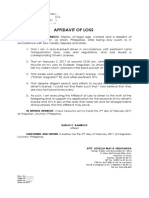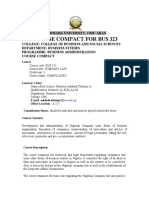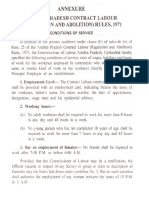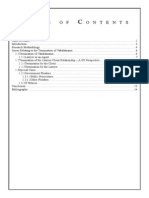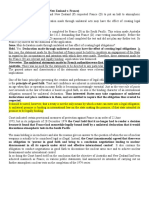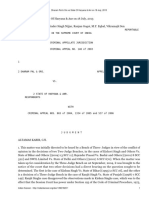0% found this document useful (0 votes)
119 views3 pagesPIL Assignment
The document discusses several key concepts in international law including:
1. The doctrine of sovereign immunity which prevents governments from being sued without consent.
2. The act of state doctrine which states that courts will not pass judgment on other governments' acts within their own territory.
3. The difference between treaties which require Senate ratification, and executive agreements which become binding through executive action alone.
4. Peremptory norms or jus cogens which are fundamental principles of international law that cannot be derogated from.
5. The treaty making process and the essential requirements for a valid treaty including competent representatives, freely given consent, and conformity with international law.
Uploaded by
Deeej cartalCopyright
© © All Rights Reserved
We take content rights seriously. If you suspect this is your content, claim it here.
0% found this document useful (0 votes)
119 views3 pagesPIL Assignment
The document discusses several key concepts in international law including:
1. The doctrine of sovereign immunity which prevents governments from being sued without consent.
2. The act of state doctrine which states that courts will not pass judgment on other governments' acts within their own territory.
3. The difference between treaties which require Senate ratification, and executive agreements which become binding through executive action alone.
4. Peremptory norms or jus cogens which are fundamental principles of international law that cannot be derogated from.
5. The treaty making process and the essential requirements for a valid treaty including competent representatives, freely given consent, and conformity with international law.
Uploaded by
Deeej cartalCopyright
© © All Rights Reserved
We take content rights seriously. If you suspect this is your content, claim it here.
/ 3




